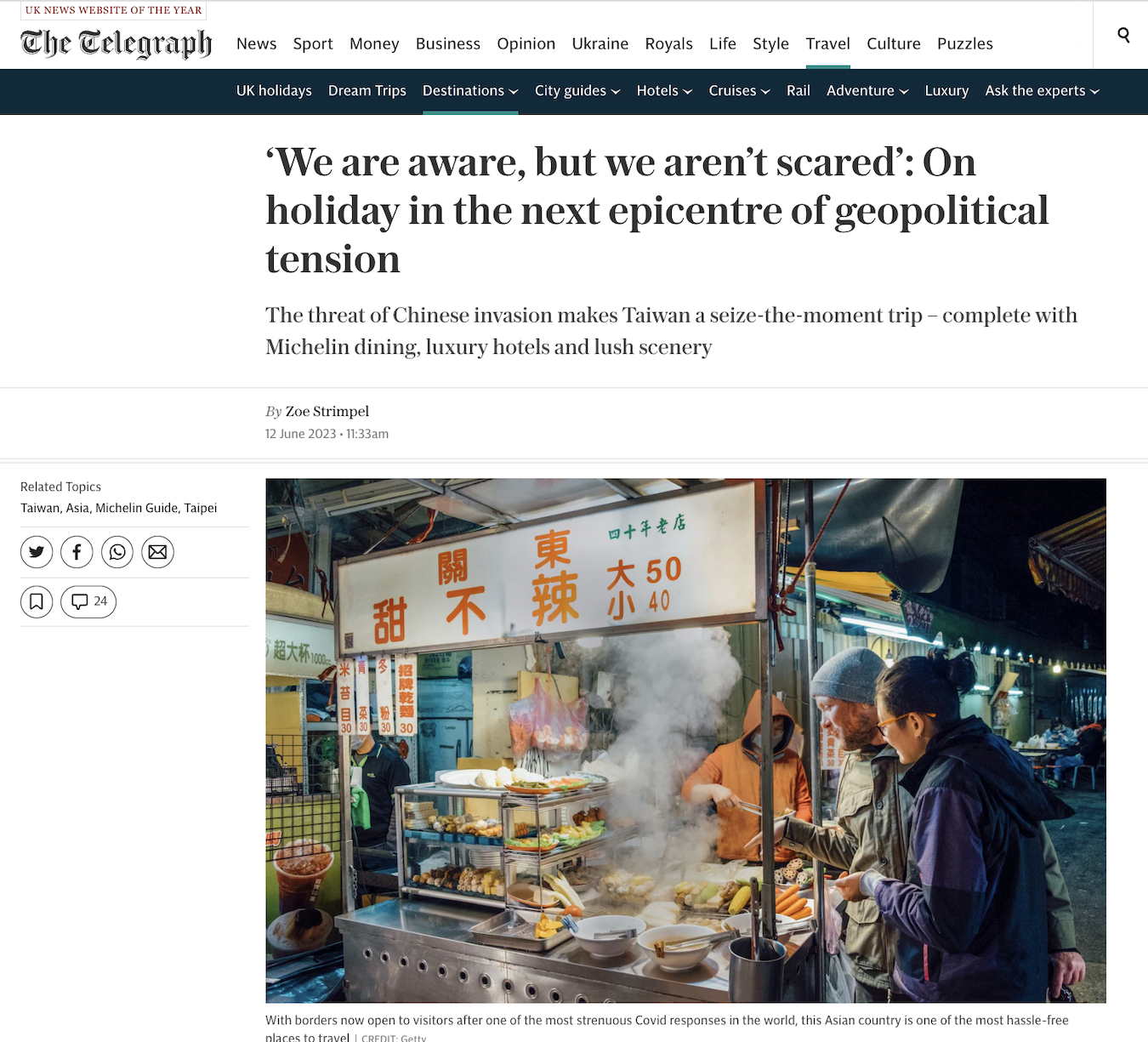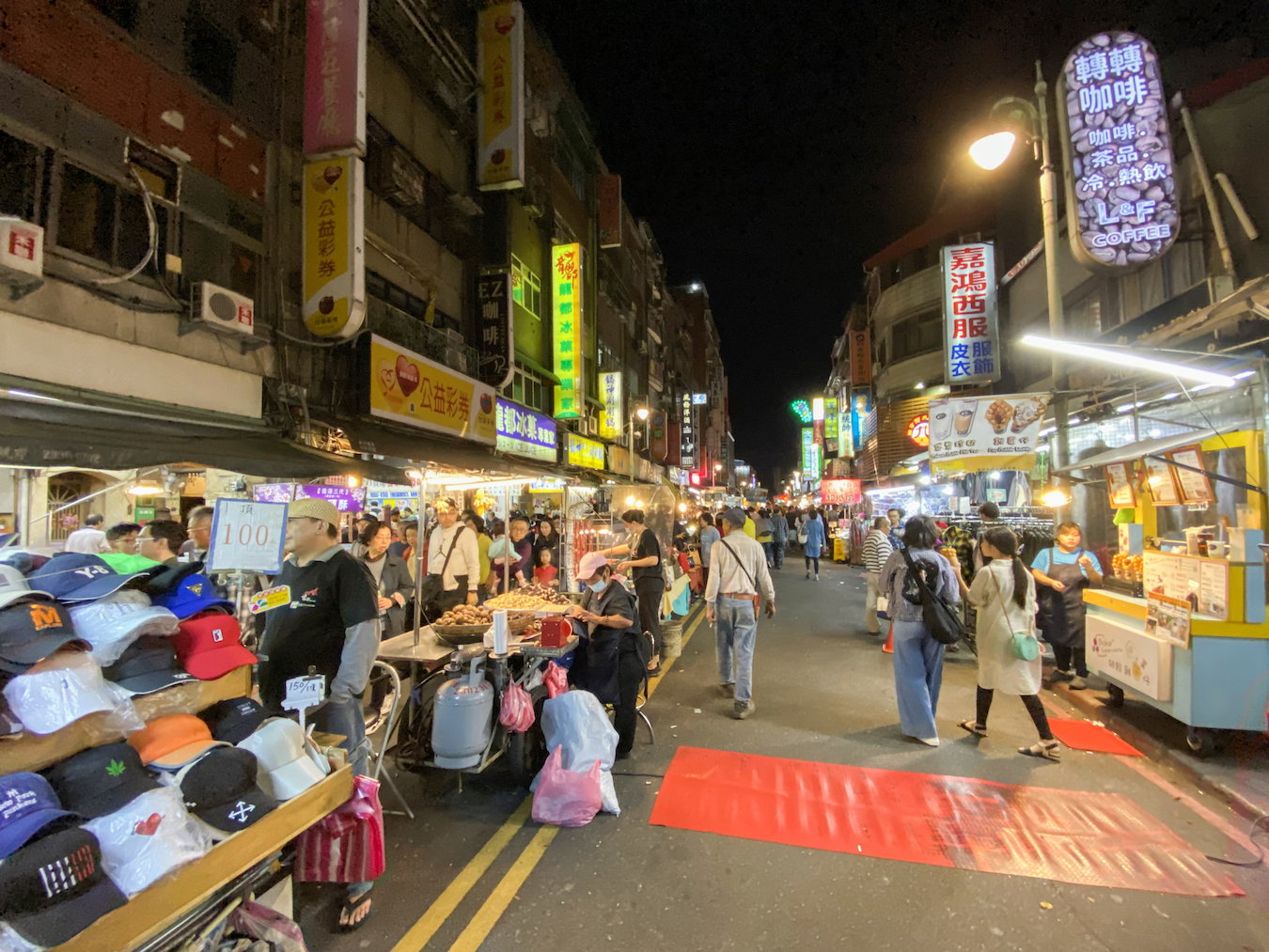by Brian Hioe
語言:
English
Photo credit: Wpcpey/WikiCommons/CC BY 4.0
A JUNE PIECE in The Telegraph, on the joys of tourism in Taiwan as it is under geopolitical threat, proves a bizarre exercise in colonial disaster tourism–or pre-disaster tourism, if you would, seeing as there has been no Taiwan contingency as yet.
In particular, the piece by Zoe Strimpel takes readers through a panorama of Taiwan’s culinary delights and rich history. In itself, much of the piece is adequately researched. But this would be decidedly less problematic, however, if Strimpel did not term Taiwan to be “like Denmark, but more exotic”, and seem to be preoccupied with the apparent blase reaction of Taiwanese to geopolitical threats.
Indeed, Strimpel’s last piece on Taiwan, written after parachuting into the country in May for a week around the time of former UK prime minister Liz Truss’ visit to Taiwan and nonetheless receiving high-level government officials, termed Taiwanese residents to be in “blissful denial” of the Chinese threat. Certainly, Strimpel is not incorrect when, as noting the responses of her interviewees, many attribute this to Taiwan simply being used to it.

The article in question
At the same time, it proves distasteful and downright colonial to suggest that the westerner should come and visit Taiwan before it is gone. Although Taiwan’s case may be unique, given that the possibility of it “disappearing” is due to the Chinese invasion threat, this proves a time-old trope of colonial travel writing. Time and time again the western tourist has urged his or her fellow westerner to visit China, the Middle East, Cuba, the former Soviet Union, or wherever–before it is “gone”. Usually, however, this threat of historical erasure is not due to the geopolitical threats a place faces but the threat to tradition from modernization, or the integration of post-Soviet countries into the capitalist world order.
It is all too telling, after all, that Strimpel begins her piece by describing Taiwan’s contemporary semiconductor prowess in techno-Orientalist terms. Visiting Hsinchu, Strimpel concludes rather incorrectly that Taiwan is “guaranteed” not to see a Taiwanese invasion so long as it maintains semiconductor dominance–never mind that the PRC has desired Taiwan longer than the time in which Taiwan has been the global leader in terms of semiconductor manufacturing–and terms Hsinchu to be Taiwan’s “geopolitical-industrial nerve center.” The description of TSMC and Taiwan’s semiconductor industry in techno-Orientalist terms is increasingly a theme of writing on Taiwan, as perhaps exemplified in a recent Wired article.
The western colonial gaze is nothing exactly new for Taiwan. But with the world increasingly perceiving Taiwan through the abstract lens of “the world’s most dangerous place,” one can expect articles as Strimpel’s to become increasingly commonplace–harping Taiwan as a hidden gem under the threat of invasion, ripe for the enjoying by the western tourist before its beautiful but tragic disappearance.



